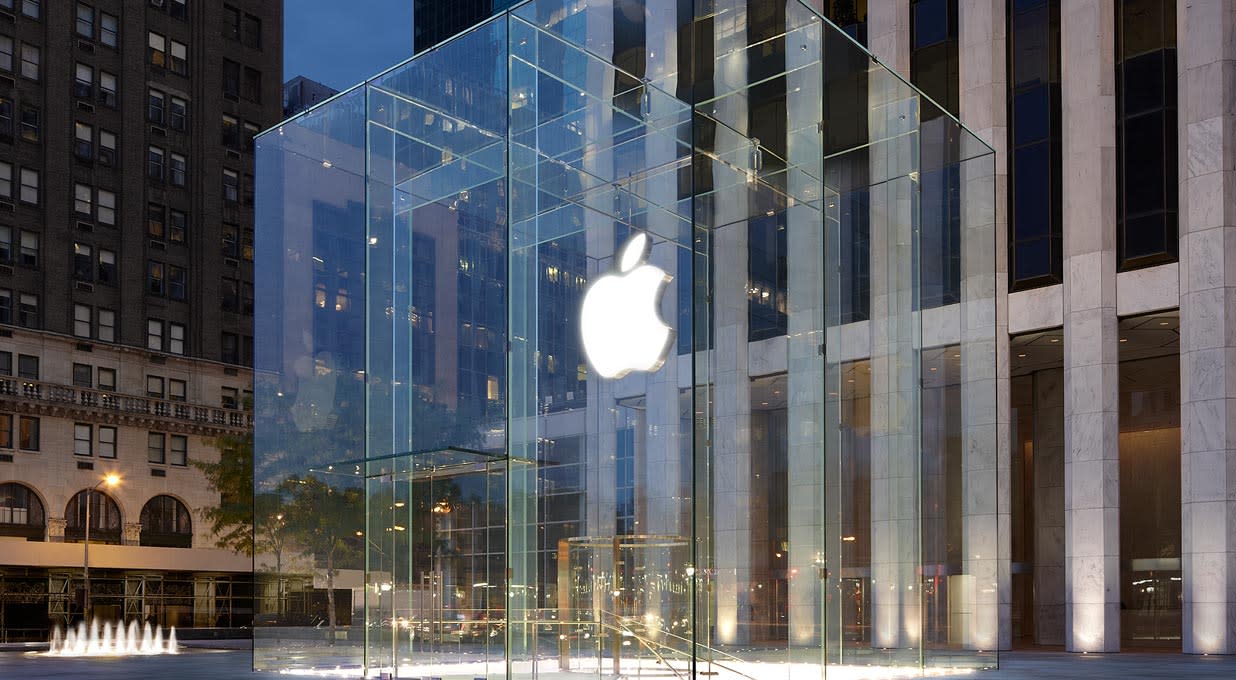Apple has released details at its annual developer conference on how it plans to integrate AI into its devices and services.
Apple Intelligence is a new product that will enable a range of AI-driven capabilities across Apple devices. Siri will be given an AI-driven update, and a partnership with OpenAI means Siri will be able to tap into ChatGPT when needed.
Users will need the latest iPhone or Mac models to be able to run most of these new features.
The shares rose 7.3% the day after the announcement.
Our view
Apple has finally broken its AI silence. This is a key moment for a business that’s struggled to deliver real innovation in recent times. Gone are the days when each new iPhone was so packed with new features that consumers felt obligated to upgrade every year.
Some estimates suggest close to 80% of iPhone users in the US are on models that are over 3 years old. None of which will be able to tap into the new AI tools. The hope for Apple is that there’s enough substance in the new features to drive a multi-year upgrade cycle – we think that could be the case.
Partnering with OpenAI brings a large model to Apple products, while the team focused on smaller on-device models to work in tandem. That’s significantly cheaper and keeping as much data as possible on-device helps Apple squash some of the privacy concerns users may have had.
Away from the AI craze, May’s second-quarter results beat modest expectations. A note of caution stems from competition in China after back-to-back quarters of revenue declines. Other big names like Huawei are directly challenging Apple and capturing a portion of local market revenue in the process. Some of these rivals boast larger installed product bases and more attractive prices.
But there has been some good news out of China. Despite an overall decline in sales in the region, the flagship iPhone saw growth last quarter. And news that the iPhone 15 and iPhone 15 Pro Max were the best-selling smartphones in urban China suggests that Apple's allure remains intact.
We're also encouraged by progress in Services - things like the Appstore and Apple Music. This area of the business is higher margin because adding new users doesn't involve the same costs as building a MacBook or iPhone. But for Services to reach its full potential, it relies on growing hardware sales occurring in the first place.
While there are some extra risks to be considered, Apple's biggest asset remains its brand. The sheer scale of Apple's sales is testament to the grip that the shiny embossed piece of fruit has on global consumers. The loyal customer base means that there's an element of revenue visibility other businesses simply don't have.
Overall, we think Apple remains strong. It wasn’t first past the post in the AI race, but the cautious approach could end up being a shrewd move. We see further upside if new features drive a multi-year upgrade cycle, but we must caution that fancy new features aren’t a magic wand. Consumer finances are still under pressure, Asia remains a tough battleground, and there are no guarantees.
Environmental, social and governance (ESG) risk
The technology sector is generally low-risk in terms of ESG, but some segments like Electronic Components can be more exposed to environmental risks. Regulatory interest in the sector has picked up recently, leading to more acute business ethics risks. Other key risks include labour relations, data privacy and product governance.
According to Sustainalytics, Apple's overall ESG management is strong. Apple's huge scale means its primary ESG risk relates to business ethics. The group's market dominance exposes it to growing regulatory risks. Apple has strong management of Governance risks, including board structure and shareholder rights.
Apple key facts
All ratios are sourced from Refinitiv, based on previous day’s closing values. Please remember yields are variable and not a reliable indicator of future income. Keep in mind key figures shouldn’t be looked at on their own – it’s important to understand the big picture.
This article is not advice or a recommendation to buy, sell or hold any investment.No view is given on the present or future value or price of any investment, and investors should form their own view on any proposed investment.This article has not been prepared in accordance with legal requirements designed to promote the independence of investment research and is considered a marketing communication.Non - independent research is not subject to FCA rules prohibiting dealing ahead of research, however HL has put controls in place(including dealing restrictions, physical and information barriers) to manage potential conflicts of interest presented by such dealing.Please see our full non - independent research disclosure for more information.


